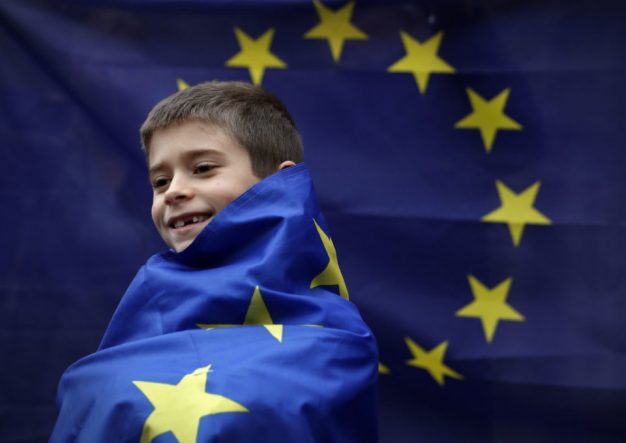
EU millions for schools’ healthy eating schemes
Ireland will receive almost €3.27 million Euros from the EU’s school fruit, vegetables and milk scheme over the coming year, irrespective of enforced school closures across the continent because of the coronavirus pandemic.
The scheme, which brings together the former School Fruit and Vegetables and School Milk Schemes, is designed to promote healthy eating habits among children.
As well as distributing fruit, vegetables and milk products to pupils, it also includes dedicated educational programmes that teach pupils – including many whose families are struggling financially – about the importance of good nutrition and to explain how food is produced.
Promoting healthy eating habits
Janusz Wojechowski, the EU’s Agriculture Commissioner, said: “In the current context, it is even more important for children across the European Union to know and understand where our food comes from. We can be proud of the nutritious, safe and high quality food that our farmers produce. Thanks to the EU school scheme, children can learn about nutrition and agriculture, while also adopting healthy eating habits.
“We have taken measures to make sure that this year’s scheme takes into account that schools had to close across Europe because of the coronavirus pandemic. But it is important that we continue to look ahead, prepare the future and send a strong sign that life will carry on once we have collectively turned this page.”
The European Commission has also published a report on the uptake of the school scheme in the 2018/19 school year. Around 155,000 schools across the EU participated in the scheme, and more than 71 million kilograms of fruits and vegetables and 167 million litres of milk was distributed to European children. This was supported by range of educational activities, boosted by €192 million Euros from the EU budget.
‘Force majeure’
In Ireland alone, 1,169 schools (mainly primary) participated in the scheme in the 2018/19 school year while a total of 257,868 kilos of fruit and vegetables and just over one and a half million litres of milk were distributed to the 161,062 children involved.
This year’s implementation of the current school scheme (for school year 2019/20) is affected by the closure of schools across the EU due to the current coronavirus pandemic. The European Commission has clarified that the ongoing crisis can be recognised as a ‘force majeure’ reason, which allows EU countries who recognise it as a case of force majeure to reimburse suppliers for perishable goods (fruit, vegetables and dairy products) that were meant to be distributed to schools participating in the scheme. Products may also be donated to hospitals, charity organisations and food banks or similar, to reach those in need.
EU countries that wish to participate in the EU school scheme must notify the Commission with their request for support by 31 January each year. The indicative EU budget per country is based mainly on the number of schoolchildren and national authorities may transfer a part (20-25 per cent) of their budget allocated from one sector to the other. They can also notify their willingness to spend more than the amount of aid requested if other EU countries decline to take up their full allocation.
Click here for a full explanation of the EU school scheme. The individual country budgets are can also been seen for 2020/21 and 2019/20.




